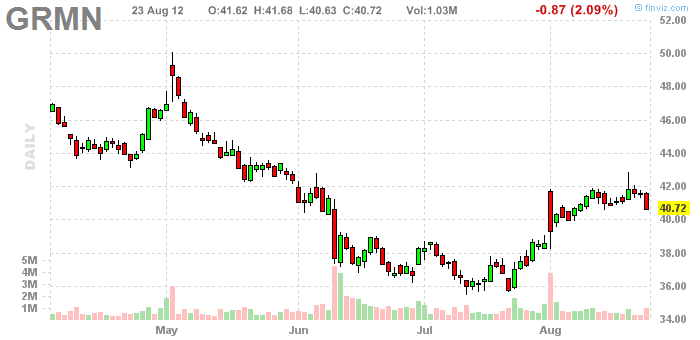On the downside WM, EPAM and KLIC are some of the notable breakdowns.
sábado, 30 de noviembre de 2013
Signals Slow start so far
On the downside WM, EPAM and KLIC are some of the notable breakdowns.
jueves, 28 de noviembre de 2013
Earn Global economy on recovery path, risks remain: IMF chief
martes, 3 de septiembre de 2013
Earn Stocks' correction coming? Not that again
lunes, 27 de mayo de 2013
Signals Retail sales weak, jobless claims up last week
jueves, 23 de mayo de 2013
Oil Exxon to sell part of Tonen stake for about $3.9 billion:sources
domingo, 19 de mayo de 2013
Earn Retail sales: Shoppers pulled back at the holidays
Earn ISIS swing trade setup.
ISIS is breaking out . Good swing trading setup for 8 to 20% profit potential.
viernes, 17 de mayo de 2013
Oil All eyes on Fed
Sometime the first reaction to the Fed is a fake out. As most would have seen there are number of studies that show Fed day to be positive day.
lunes, 15 de abril de 2013
Oil BBDA hit $.0199 From $.0004 Alert
The stock fell after hitting $.0199 but recovered its losses and closed higher today. Strong interest remains in this stock that had almost no interest when I alerted it at $.0003/.0004.
Signals Global economy on recovery path, risks remain: IMF chief
domingo, 14 de abril de 2013
Forex For Europe, Few Options in a Vicious Cycle of Debt
Forex Rate on 30-year mortgage drops to record 3.89 pct.
Newly built luxury townhomes are offered for sale in Woodland Hills, Calif. Tuesday, Jan. 10, 2012. Fixed mortgage rates hit yet another record low on the second week of the new year. But the cheap rates are expected to do little to boost the depressed housing market. (AP Photo/Damian Dovarganes) Newly built luxury townhomes are offered for sale in Woodland Hills, Calif. Tuesday, Jan. 10, 2012. Fixed mortgage rates hit yet another record low on the second week of the new year. But the cheap rates are expected to do little to boost the depressed housing market. (AP Photo/Damian Dovarganes) WASHINGTON (AP) -- Fixed mortgage rates fell once again to a record low, offering a great opportunity for those who can afford to buy or refinance homes. But few are able to take advantage of the historic rates. Freddie Mac said Thursday the average rate on the 30-year fixed mortgage fell to 3.89 percent. That's below the previous record of 3.91 percent reached three weeks ago. Records for mortgage rates date back to the 1950s. The average on the 15-year fixed mortgage ticked down to 3.16 percent. That's down from a record 3.21 percent three weeks ago. Mortgage rates are lower because they track the yield on the 10-year Treasury note, which fell below 2 percent. They could fall even lower this year if the Fed launches another round of bond purchases, as some economists expect. [Click here to check home loan rates in your area.] Average fixed mortgage rates hovered around 4 percent at the end of 2011. Yet many Americans either can't take advantage of the rates or have already done so. High unemployment and scant wage gains have made it harder for many people to qualify for loans. Many don't want to sink money into a home that they fear could lose value over the next few years. Mortgage applications have fallen slightly on a seasonally adjusted basis over the past four weeks, according to the Mortgage Bankers Association. Frank Nothaft, Freddie Mac's chief economist, said that until hiring picks up and unemployment drops significantly, the impact of lower mortgage rates will remain muted. Previously occupied homes are selling just slightly ahead of 2010's dismal pace. New-home sales in 2011 will likely be the worst year on records going back half a century. Builders hope that the low rates could boost sales next year. Low mortgage rates were cited as a key reason the National Association of Home Builders survey of builder sentiment rose in December to its highest level in more than a year. But so far, they have had little impact on the depressed housing market. To calculate the average rates, Freddie Mac surveys lenders across the country Monday through Wednesday of each week. The average rates don't include extra fees, known as points, which most borrowers must pay to get the lowest rates. One point equals 1 percent of the loan amount. The average fee for the 30-year loan fell to 0.7 from 0.8; the average on the 15-year fixed mortgage was unchanged at 0.8. For the five-year adjustable loan, the average rate declined to 2.82 percent from 2.86 percent. The average on the one-year adjustable loan fell to 2.76 percent from 2.80 percent. The average fee on the five-year adjustable loan rose was unchanged at 0.7; the average on the one-year adjustable-rate loan was unchanged at 0.6.
Earn Swing trading opportunities
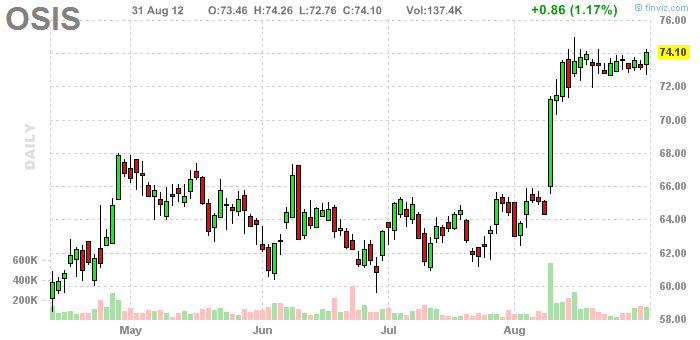
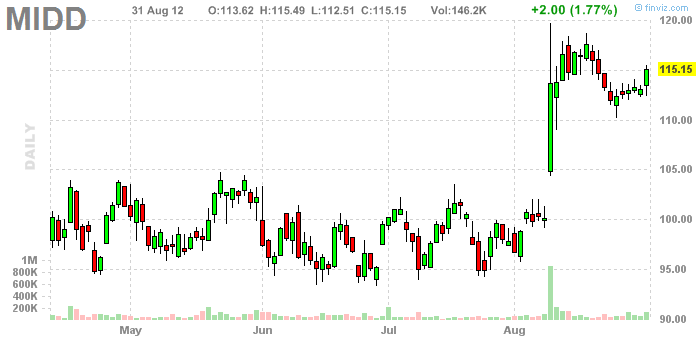
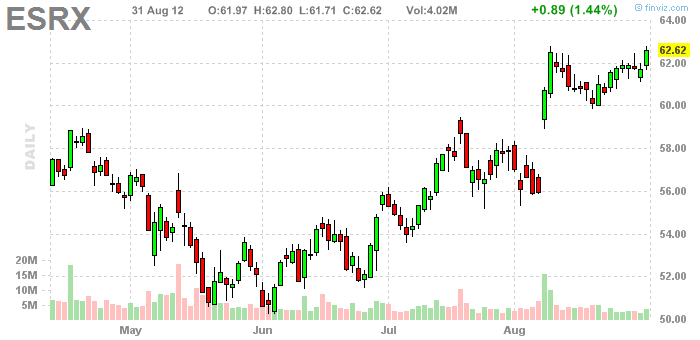
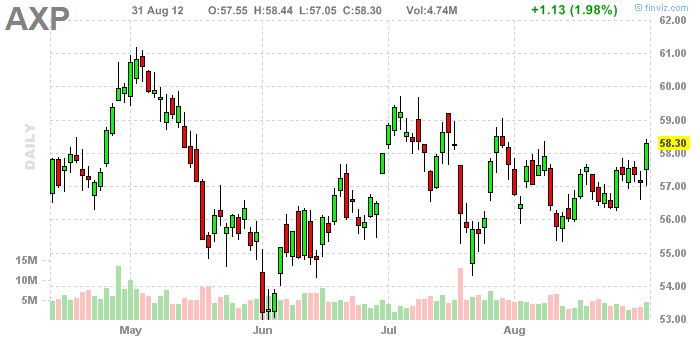
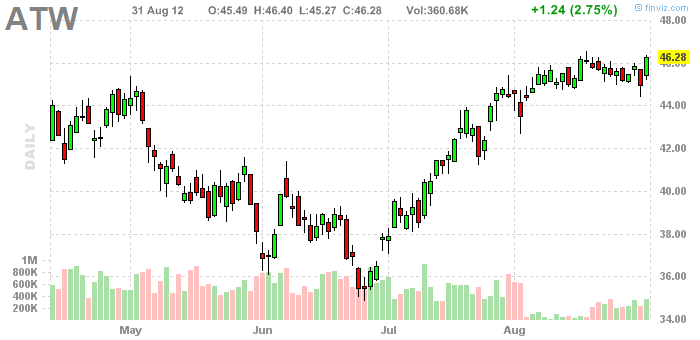
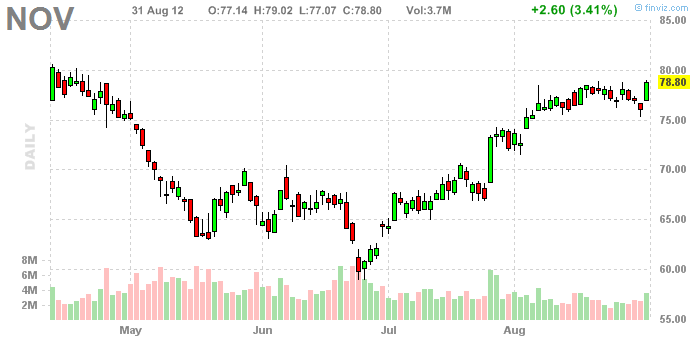
viernes, 12 de abril de 2013
Earn Exiting watchdog sees flaws in SEC's rulewriting
Signals Greece sets March 8 deadline for investors in bond swap
domingo, 31 de marzo de 2013
Forex Gold & Copper Trends Are Still Higher: Holmes
domingo, 10 de marzo de 2013
Earn Citigroup cut investment bank bonuses by 30 percent: report
miércoles, 27 de febrero de 2013
Forex Holding the gains
The large cap continue to attract interest. Small caps have been under performing. Small caps tend to make big moves in most bull market. They are the engine of growth. Small companies can dramatically grow on Q/Q basis and as a result can quickly double or triple.
miércoles, 13 de febrero de 2013
Forex Exiting watchdog sees flaws in SEC's rulewriting
Earn Gold & Copper Trends Are Still Higher: Holmes
martes, 12 de febrero de 2013
martes, 5 de febrero de 2013
Signals For Europe, Few Options in a Vicious Cycle of Debt
Oil BBDA - One of My Best Alerts Ever Forming Cup and Handle?
BBDA was an alert to my subscribers at $.0003/.0004 a share. The stock recently hit almost $.02 a share. Today the stock is still holding to gains and is looking very strong.
http://thepennystockgurus.com/articles/bbda-stock-soars-from-0003-0004-to-0144/
BBDA continues to maintain strong bid support, and could have formed a cup and handle. This means this stock is poised to break to new highs? We will soon find out.
martes, 29 de enero de 2013
Forex Stock Market for 10/12/12
sábado, 26 de enero de 2013
Signals UYMG Issues Impressive News Today
'Our authorized share count has risen this year to account for our transition into On Track Technology becoming our main subsidiary. We will not be raising the Authorized share count any further while we control/own UYMG,' said Michael Oliver president of Unity Management group Inc. He went on to add that our valuation or market capitalization is very low for the nature of what we are trying to accomplish. Our valuation is that of many OTC Market shell companies at this time. We are not a shell and have many results, announcements, and filings coming, that will yield a higher value immediately as traders and investors participate in the trading of our stock. We are looking for millions of dollars of value and business here, not 10s of thousands or hundreds of thousands.
Might not be a bad time to take a closer look at UYMG. I think the stock heads back over $.002 this week... but what do I know?
EAST HANOVER, N.J., Sept. 4, 2012 /PRNewswire via COMTEX/ -- Unity Management Group (OTC Pink:
jueves, 24 de enero de 2013
miércoles, 16 de enero de 2013
Earn Choppy action continues
Market has had tough time sustaining multi week rallies. We will see if this time it is different. This is the kind of environment where you have to focus on small moves while protecting capital.



